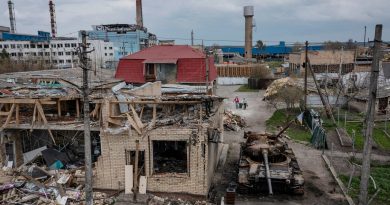Europe’s “Selfish East” and “Compassionate West” Clash Over Immigration
Staff Writer
Since the Arab Spring revolts of the early 2010’s, thousands of Middle Eastern and North African refugees have sought sanctuary in Europe. What began as a series of peaceful demonstrations quickly devolved into violent protests, coups, and civil wars that led to an outpouring of refugees from the area.
Until 2015, the influx of migrants to European Countries was manageable. Now, with refugees arriving en masse from Syria, Afghanistan, and Iraq, Europe struggles to adjust to what is being called a Migrant Crisis.
The International Organization for Migration reports that since the start of 2017, 70,565 migrants have arrived to Europe, with a total of 387,739 arriving in 2016. Due to their proximity to the crisis’ epicenter, Greece, Italy, and Hungary house a majority of new migrants before they travel towards Germany. Insufficient resources and limited space in these entrance countries often leads to chaotic relocation and asylum processes, along with overcrowded refugee camps. These difficult conditions have made some countries reluctant to accept any migrants.
Hungary, for example, responded to the Migrant Crisis by closing its border with Croatia in 2015, and diverting incoming people to Slovenia where they were transferred across the Austrian border. Hungary’s decision to close its Croatian border “underlines Europe’s collective failure to draw up a coherent strategy to deal with the huge movement of humanity”, says the The New York Times.
To alleviate the rising tensions between European countries over the disproportionate intake of refugees, the European Commission, the executive branch of the European Union, created a resettlement plan. When announced in 2015, the plan sought to relocate 120,000 refugees from Hungary, Italy, and Greece to other EU nations within two years, according to BBC News. Since then, the number of planned migrants has risen to 160,000.
Due to uncooperative member states and ineffective methods of implementation, less than 10 percent of the 160,000 asylum seekers were relocated as of 2017. So far, only Malta and Finland have accepted their target number of refugees, CNN reports.
EU Commissioner of Migration, Dimitris Avramopoulos, warns that EU member states who fail to participate in the relocation agreement will face heavy fines. According to the Independent, the EU recently suggested that nations will be fined 250,000 Euros for every refugee they turn away. The revenue from these fines is intended to give Greece and Italy financial support to compensate for their large intake of refugees.
Avramopoulos, while at a press conference in Belgium, said that, “there are no more excuses for the member states not to deliver. It is possible and feasible to relocate all those who are eligible” and that the success of relocation depends on the political will of EU states, according to CNN.
Most of the EU states failing to meet resettlement quota are Eastern European countries. Sputnik news reports that at least half of the population in nine Eastern European nations advocates barring all Syrian refugees. In response to this divide, media outlets frame Europe as being split between the “compassionate West” and the “selfish East,” reports the Guardian.
Despite the problems their resistance causes for refugees, Eastern European nations are not refusing admittance out of spite. Rather, their hesitations are born from the Ukrainian refugee crisis, their personal history of ethnic identity, and their own fragile economies.
Russia’s annexation of Crimea in 2014 sparked an outbreak of violence, forcing as many as 2,000,000 Ukrainians from their homeland, reports the Center for European Studies. Poland, Italy, and the Czech Republic accepted most of the Ukrainian refugees, with Poland having a Ukrainian refugee population of over 400,000 people, according to the New York Times.
Ewa Piechota, an official in Poland’s Office of Foreigners, told Aljazeera that “the [Polish] government’s resources have been stretched to the limit since the crisis in the Ukraine began”. This partly explains why Poland accepted less Syrian asylum seekers per-capita than any other European nation, and holds firm that it “will not be accepting a single refugee” says the Independent.
In addition to thinning resources, growing Xenophobia in Poland greatly contributes to the limited number of refugees that are accepted. Despite a history of violence between Ukraine and Poland, Ukrainians were able to assimilate relatively easily into Polish society with little discrimination or backlash. However, as the number of Ukrainians entering the country increases, so does a fear of “foreigner takeover” of jobs and opportunities.
Jaroslaw Kaczynski, head of Poland’s Law and Justice Party, uses similar anti-foreigner rhetoric to support Poland’s actions. Kaczynski claims that Syrian refugees cannot be accepted into Poland due to the “various parasites and protozoa” that may bring dysentery or cholera into the country, the Independent writes.
Poland’s drained resources and growing xenophobic sentiments contribute to its refusal to participate in the EU’s relocation plans or pay related fines. For many other Eastern European nations, however, the hesitation with accepting refugees stems from ideas of ethnic nationalism.
After the breakup of the Soviet Union, Eastern European states found their borders being redrawn constantly, often coupled with frequent regime changes. Such an unsteady political environment, combined with the split of ethnic groups between countries, created a tradition in Eastern Europe of defining oneself by ethnic identity—not by country.
This idea of nationalism based on homogenous ethnic groups was reinforced by the continued failure of multi-ethnic states; such as Czechoslovakia and Yugoslavia. After the fall of their communist dictators, these two nations disintegrated violently, and the countries created from their splintering continue to experience severe ethnic conflict.
By refusing to meet EU relocation quotas, European nations not only face heavy fines, but also legal action. In early June 2017, the European Commission opened a case against Hungary, the Czech Republic, and Poland for their refusal to participate in relocation. According to the New York Times, this is the first time legal action has been exercised over an EU member nation regarding the Migrant Crisis.
During the first post-Soviet decade, birthrates in Eastern European nations sharply declined, which left a massive gap in its workforce. The Peterson Institute for International Economics estimates that between 1990 and 2015, the workforce shrank by 10 million people and it predicts a further decline over the next 25 years. Eastern European nations argue their deteriorated labor force and failing economies can barely support native populations, let alone incoming refugees who will require additional resources for assimilation and integration.
Unlike like France, Germany, and the UK, Eastern European nations have little experience in dealing with refugees from non-European cultures. As a result, they are not only skeptical of outsiders, but also lack the required infrastructure to assimilate and support the mostly Syrian migrants that the EU plans on relocating, reports The Guardian.
While some Western European nations have had the time and resources to adjust their healthcare, language, and education systems, Eastern European nations have not been able to and are at a disadvantage. This infrastructure inequality continues to hinder the progress of a singular, multi-partisan approach to immigration on behalf of the EU.
In order to properly provide and support refugees entering the EU, all nations must decide on, and comply with, a relocation plan. However, the media-created divide of a “selfish East” and “compassionate West” ignores the historical context in which this issue exists. Oversimplifying the issue into a black and white view of policy further divides nations that need cooperation.


